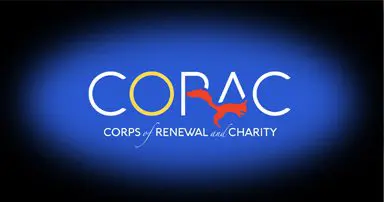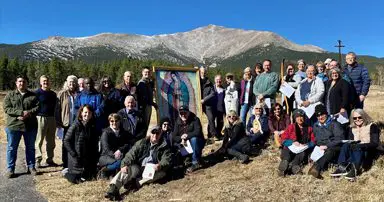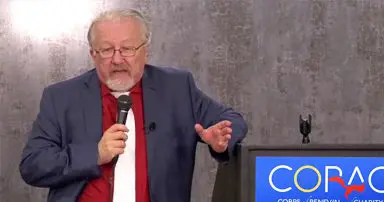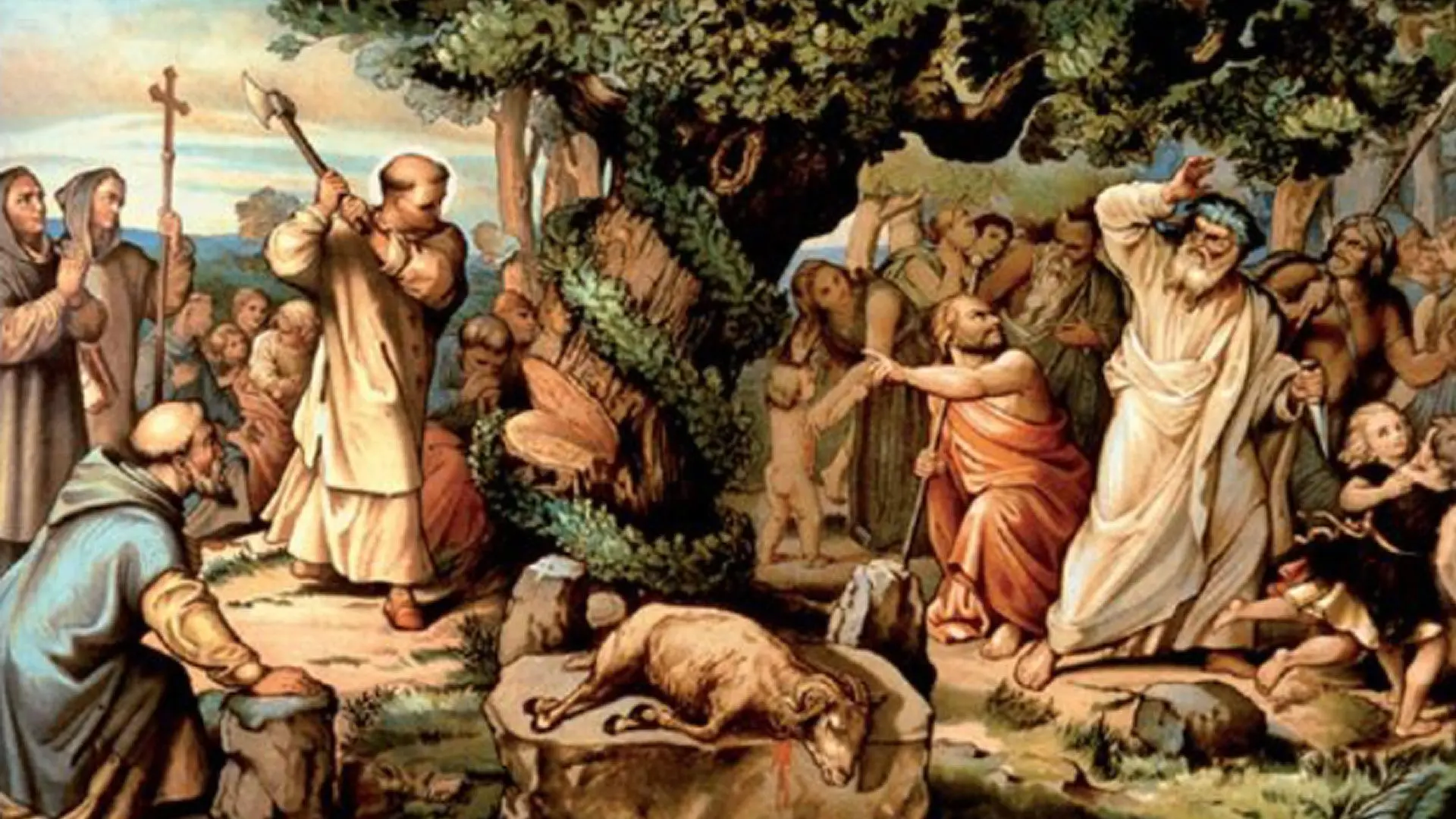Credible rumblings suggest that, before the spring is over, the Pope will effectively ban the Tridentine Mass altogether. While Pope Francis has made no secret of his contempt for the Traditional Latin Mass (TLM), that may or may not be true. A classic tactic of battle, either political or actual, is to send signals you are going to mount a particular offensive that you are not, in hopes of throwing your opponents into disarray. Hopefully, they will focus on your red herring rather than discerning your actual plans and preparing for them.
Last month there was considerable trepidation in some Catholic circles as plausible speculation radiated from the Vatican that the Pope was going to issue the ban on April 3. I only paid marginal attention as I have thought, for almost a year, that if it was going to come at all, it would come in May. It was illuminating to me, though, to get wind of the reactions of several very orthodox Bishops. Some were contemplating open defiance, a defiance that could give cause for their removal. If this should come to pass, we are less in need of St. Thomas Mores who will give their life for the faith and more in need of St. Georges who will press on to victory for the faith.
While a controversy is still unsettled, protests and demonstrations can be effective in influencing the outcome. Once battle is joined, shrewd strategic and tactical planning and execution is key to prevailing in a dispute. The only shouting that should be done is for specific tactical reasons. Remember Sun Tzu’s dictum that in battle you want your opponent to think you are doing what you are not and that you are not doing what you are. So, I am going to offer here a rather mild version of the type of raw strategic counsel I have long given politicians and public officials – in order that those who cherish fidelity to Christ, Scripture and the Magisterium may prevail rather than just complain.
The primary question is, does a Pope have the unilateral authority to override the autonomy of local Bishops and forbid a legitimate form of Mass throughout the world? With one important caveat I am persuaded that he does. At the time of the Protestant break from the Church, there was no standard liturgy. A multitude of Mass styles prevailed throughout the world. The Council of Trent codified that the Mass that had been been said at Rome (the Latin – or Tridentine – Mass) since the sixth century was to be the uniform Mass style for the world. All others were to be suppressed. And they were. The reigning pope at the time, Pius V, confirmed the council’s decree. He did, however, grant several exemptions for regions that had a well-structured Mass with deep historical roots. Here then the caveat: Pope Pius V confirmed an action initiated by the Council, rather than initiating the action without formal concurrence by the Bishops of the world. Notably, Pius V’s main action was to grant exemptions to some areas’ preferred form of Mass. The question of whether styles of Mass can be suppressed was satisfied by the Council of Trent; the question of whether the Pope can suppress without formal consultation with the Bishops in council is open.
The question then becomes if the Pope does act unilaterally, what should the response of the Bishops of the world be to this usurpation of their autonomy? Unless you are confident that there are enough Bishops in the world who would openly defy such a decree that it could not stand from the start, it would be imprudent to do so, yourself. All that would do would be to identify for the Vatican which Bishops they need to replace, leaving the faithful bereft of advocates for their cause. That does not mean there is no action that could be effective.
I do not think the Tridentine Mass will be permanently banned. It has deep history and cultural power. It is, even for me, who prefers a reverent Novus Ordo, the Mozart of Masses. While I think the Pope likely has the authority to do this, I do not think it a prudent exercise of that authority and may even be an abuse of it. The squabbling between advocates for the Tridentine Mass and the Novus Ordo was largely put to rest by Pope Benedict XVI in Summorum Pontificum, which allowed any qualified Priest to say either form of the “two usages for the one Roman rite.” Pope Benedict expected this would lead to mutual enrichment. That is largely how it played out. Off the defensive, far fewer advocates of the Tridentine Mass insisted that it was the only valid form of Mass while many who had grown up with the Novus Ordo felt freer to sample the Tridentine Mass without fear of being hectored. It dialed the controversy back dramatically. Perhaps I am missing something, but I can see no reason to change this except to inflame controversy anew.
Why would the Vatican want to inflame a controversy that was well on its way to peaceful coexistence? Well, while many Novus Ordo goers are orthodox, Tridentine Mass advocates (with the exception of those who make themselves functionally Protestant by declaring it the only legitimate Mass) tend to be solidly orthodox, deeply devoted to Scripture and the Magisterium. This Vatican has danced with abrogating the continuity of the faith in ways that directly contradict the Magisterium and, sometimes, even the words of Christ. The old Soviet Union was a master at smoking out and crushing dissent. The technique here is similar. Make a senseless threat or, even, carry it out and see who jumps. That is who you must crush to achieve your ideological revolution.
How, then, to effectively resist such senseless ideological attacks? Given that we are called to walk a line that encompasses obedience to legitimate authority, whether it is exercised prudently or not, with fidelity to Scripture and the Magisterium. I think it wise to consider how David dealt with King Saul. While submissive to the Lord’s anointed, David did not cease to win victories for Israel, trusting that God was both testing his full commitment and would deliver him in God’s own time. Here are four things you can do to keep hope – and your Diocese – together:
- Take the opportunity to reform the Novus Ordo: The problem with the Novus Ordo is its lack of consistency from Parish to Parish and liturgical abuses that can make it seem more like a show than worship. Begin now to identify and meet with TLM advocates from your Diocese to make common cause. Whether or not the Tridentine Mass is banned, together you can do a lot of good in reforming the Novus Ordo. Depending on your preference, you could encourage communion rails, extensive use of Latin and chant, and even having Mass said ad orientum. Whether or not the Tridentine Mass is banned, you have autonomy in your Diocese on what the norms for the Novus Ordo will be – and can make them consistent and reverent. All you really have to do is follow the guidelines from the actual documents of Vatican II rather than the noxious “spirit of” formulation that has been used to justify so many abuses. I know developing relations with TLM advocates in such a situation will require a fine diplomatic hand. Get your best people on it and be personally involved. Wouldn’t it be amazing if the fruit of this transient ban on the TLM was to make the Novus Ordo more reverent, consistent, and worshipful? And there is not a thing the Vatican could do about it.
- Slow walk any voluntary collaboration with the Vatican: While you are obligated, before Christ, to obey legitimate orders from the Vatican, there are areas that require voluntary cooperation, such as collections for Peter’s Pence. Your enthusiasm – or lack thereof – for all voluntary cooperation can make or break them without violating your legitimate duty of obedience.
- Collaborate with your brother Bishops: Even those Bishops who are ideologically attuned with the Vatican will resent usurpation of their autonomy, without a conciliar decree, on a matter that has been part of their autonomy for eons. You don’t need to push for freedom on the Latin Mass with fellow Bishops so much as you do the right of each Bishop having the traditional autonomy to make licit decisions for their Diocese. (I once handily won a big issue that had been stifled for decades, prevented from going to the ballot box, by framing it with discipline as a question of whether it was the people’s – or the elite’s – to decide. Got a lot of people who disagreed with me on the substance supporting me on the principle…and that was decisive.)
- Make yours the visible face of your Diocese: This is labor intensive. Visit at least one – and preferably two – Parishes for Daily Mass each week. Take time to visit afterward with the faithful. Have the Priest or a Deacon take you around from table to table and get to know active Parishioners throughout the Diocese. Maybe make a brief presentation after Mass and ALWAYS take a period for questions. Do NOT salt the audience with prepared questions. Yes, you will get some weird ones at times, but it will help you to think on your feet in real time – and parishioners will love that you took the time for them even when they don’t agree with you. I cannot tell you how many times I found allies among those who initially disputed with me because I hung in there with them. If somebody gets really overbearing, the Priest or Deacon can – and should – move it along.
There are certain habits of mind and action that should be cultivated to facilitate consistent effectiveness. For now, let’s just consider two, starting with a repeat of one above from a different angle:
- Collaborate with your brother Bishops: By nature, Bishops are a pack of lone wolves. That is a function of the necessary and salutary autonomy each Bishop exercises to effectively lead his own Diocese. But this can also lead to two serious impediments to effective collaborative efforts with other Bishops. First, because of the deference Bishops are customarily shown, it is easy for them to develop a skewed sense of personal strengths and weaknesses. (Trust me – Priests know very early on which brother Priests are on the ‘Bishop track’ and treat them accordingly). It would be prudent to cultivate personal friends and salt your chancery with people who will challenge you. I’m not speaking of the petty critics who are just contrarians, but people of substance who will help you refine your thinking and skills. The best are those who can be completely candid in private while enthusiastically supportive in public. Publicly, you are at a tactical advantage if you are underestimated – and vice versa. Second, there is a tendency to judge brother Bishops by how closely they resemble you. Contemplate I Corinthians 12:12-27 deeply. Each Bishop has different strengths and weaknesses. Some are profound intellectuals, some are charismatic, some have great courage. Success in a collaborative effort depends on properly deploying each member and using their greatest strengths to good effect while covering their weaknesses. Determine from the start that there are no junior partners in your collaboration. Do not get trapped in a cliquey or elitist circle that looks down upon Bishops who have different strengths and weaknesses than you. A courageous Bishop who is iffy on theology can be a great scout, clearing the ground before you. Some brilliant Bishops lack the common touch that inspires ordinary people. A committee of five men drafted the American Declaration of Independence. Interestingly, John Adams was the primary intellectual force behind its content. When it came time to draft the final version, Adams tapped Thomas Jefferson for the task even though they were sometimes bitter rivals. Adams candidly conceded that he wrote like a clerk while Jefferson’s rhetoric would soar – and this was too important to be decided by personal jealousies. Keep focused on the mission, taking pains to use the talents of all collaborators to best advantage, and you will vastly increase your chances of success.
- Make written statements coherent and comprehensible to all. Most ecclesial documents adopt a classic scholastic style. That is congenial because the scholastic style lends itself to precision and fine distinctions. The flood of encyclicals issued by St. John Paul in the 90’s and the writings of St. Thomas Aquinas are fine examples of documents written in the scholastic style. The virtue of these documents subsists in their substance. The scholastic style is just the elegant, precise setting in which that substance is fitted. However, a certain intellectual laziness has diluted the effectiveness of the scholastic style, as it is too often used to cover a lack of substance and intellectual rigor in a document. The ‘nuclear-free zone’ pretensions of the 70’s were just plain silly – and served to diminish the perceived moral authority of the Bishops. A better example is the USCCB’s position on immigration. It does not particularly bother me that I disagree with the Bishops on this political issue: what bothers me is that your formal statements on it are so banal and trite. If you are going to tackle a hard issue seriously, you are obligated to tackle the key objections head-on. The Bishops rarely deal with the disruptions to employment and social cohesion their position entails – and NEVER tackle how it should be legitimately paid for and who is responsible – or what say those responsible should have. Nor do they pressure foreign nations to reform their systems. Just let the general public in America deal with all the burdens because it is their duty. This is just rank virtue-signaling that adds no light to the issue. St. Thomas Aquinas took great pains, in every dispute he weighed in on, to grapple with the most cogent arguments against his position and address them. He was a serious thinker, not a shallow moralizer. In crafting the American Constitution, the founders grappled directly with the very serious problems inherent in the history of both democracies and republics. By doing so, they came up with a blended system that balanced the need for stability with the primacy of ordered liberty under law. Had they avoided these very tough questions, they could never have crafted the uniquely new system that stood quite well for over 200 years. If, instead, they just virtue-signaled by opining that, “everyone deserves to breathe free” and justified their lack of rigor by their good intentions, America would not have lasted two decades. St. Paul VI’s encyclical, Humanae Vitae, is not a good example of the scholastic style, but it is a great example of clarity, precision, and concision. It is the most prophetic document I have read in my lifetime. There is an old dictum that if a Bishop does not have to speak on a matter, he should not speak on it. I would not go that far, but I do say if he speaks, his speech should be clear, clear-headed and add to the discussion rather than just piling on to an ideological hobby horse without grappling with the most contentious issues. Jesus said, “Let your yes be yes and your no be no.” (Matthew 5:37). Most simply interpret this to mean, don’t lie. I think it means more than that: that you must always make your point and your motives clear without shrouding them in pettifoggery. To use an example from living memory, Ronald Reagan could make a verbal error in his speech and no one cared, because everyone knew where he was coming from. Bill Clinton could make a declarative statement while pounding his fist on the podium and few were sure he actually meant it.
Almost all Bishops who are openly orthodox know they will never receive advancement under Pope Francis. In a peculiar fashion, that is liberating. You don’t have to worry about how your actions affect any upward mobility in the near future. Having already staked your ground, those with the greatest potential for growth are those who are bold in their orthodox declarations and shrewd enough to avoid giving cause for removal.
The Tridentine Mass may be banned for a season but, provocative as that would be, it is not the great issue before the Church today. The great issue is the extent of and limitations on authority and how each level of the hierarchy may licitly and properly operate. The controversy over the Tridentine Mass is the sizzle, but the rumblings on synodality is the steak. Don’t ignore the sizzle, but keep your eye on the steak which will determine your autonomy and authority under Scripture and the Magisterium.
*********
I was delighted when the Padre Pio Prayer Group of Denver resumed operations this month after a three-year layoff due to Covid. It meets the first Saturday of the month at St. Patrick’s Oratory, 3300 Pecos St., Denver 80211. The Priest begins taking confessions at 9:30 a.m. We say a Scriptural Rosary at 10, followed by Mass and Benediction at 10:30. We have a wonderfully orthodox Franciscan Priest, Fr. Keith, leading us with a charming British accent. He had celebrated a few Masses at Mother Cabrini Shrine in Golden before being abruptly removed from the schedule. The Cabrini nuns in Golden have a limited tolerance for orthodoxy. But we get a very reverent First Saturday with a Priest who would make St. John Paul smile. This is one of my favorite forms of public devotion – and I am sure glad to have it going again when I’m home. If the mood hits you, come out and join us next month.
*********
A big thank you to all who have donated to our May funding drive for CORAC. WE have ambitious plans for this year in getting more people working together to help knit the social fabric together even as the old institutions are failing before our eyes. If you never have yet, take a close look at all the resources we offer from our Health and Wellness, Prayer, Communications, Sustainable Living, Education, and Crisis Scenarios teams. We have lots of brief downloadable materials that can help you in a crisis, along with instructional videos to help you get started working with others in your own neighborhood. All of this is developed by people just like you, volunteering their time and talent to make sure we can survive and thrive in whatever situation we find ourselves in. There is no charge for anything we do, including membership, but we do rely on your generous donations to keep everything rolling. So, keep those cards and letters coming, folks!

If communication goes out for any length of time, meet outside your local Church at 9 a.m. on Saturday mornings. Tell friends at Church now in case you can’t then. CORAC teams will be out looking for people to gather in and work with.
Find me on Twitter at @JohnstonPilgrim
























0 Comments